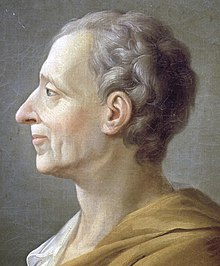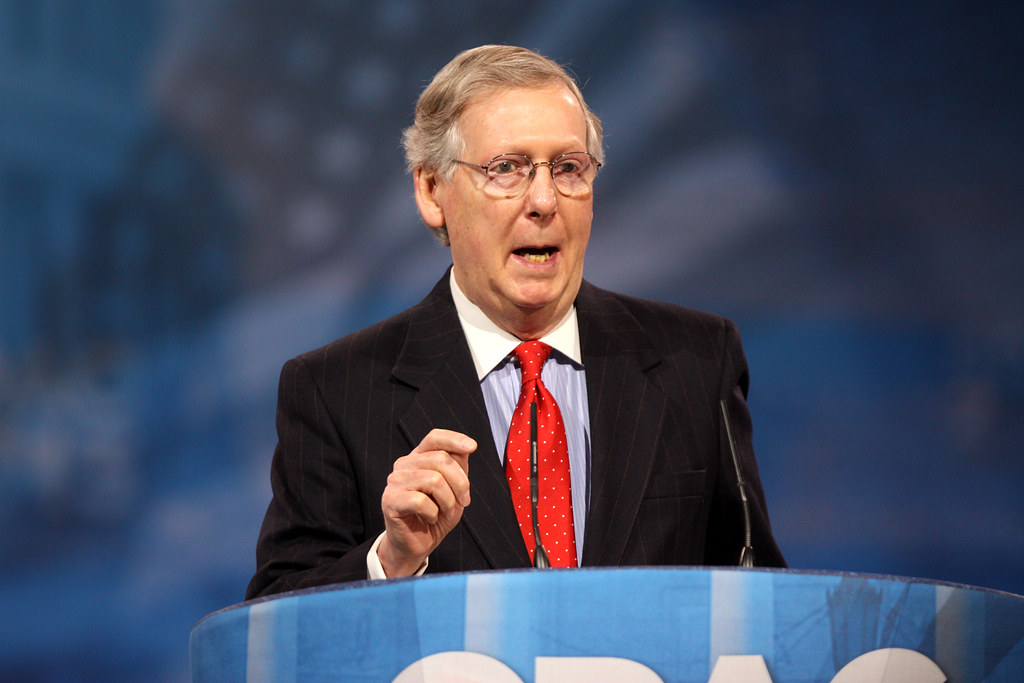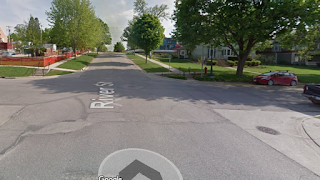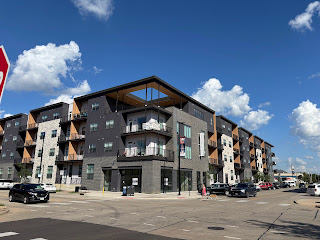 |
| Independence Hall, Philadelphia |
On this Constitution Day, we may pause to remember our founding document, the oldest written constitution in existence, while wondering whether this fall's elections will be able to proceed. Benjamin Franklin is supposed to have described the constitutional framework as "a Republic, if you can keep it." Can we?
The separation of powers with checks and balances featured in the U.S. Constitution was a product of the Framers' 18th century worldview. This worldview was informed by both a Biblical understanding of human sinfulness and a rationalist-humanistic understanding of human potential.
 |
Temptation of Christ by Juan de Flandes (1460-1519) (Wikimedia commons)
|
|
The Bible taught them that sin was part of the human condition, and that this sin was driven by self-interest. "All have sinned and fallen short of the glory of God," wrote Paul (Romans 3:23, NRSV); Jesus, the one who did not sin, was nonetheless tempted by the self-concern inherent in his human nature. The Gospel of Luke describes Jesus being tempted in the desert with food, kingdoms, and protection from physical harm (4:1-13)... later generalized in Thomas Hobbes's Leviathan into gain, glory, and security, the three motives for people to "invade" each other. Individually we might learn to resist these temptations, but governing the new country would require attention to them, both in the citizens and the government. As James Madison wrote in Federalist 51:
If men were angels, no government would be necessary. If angels were to govern men, neither external
nor internal controls on government would be necessary. In framing a government which is to be administered by men over men,
the great difficulty lies in this: you must first enable the government to
control the governed; and in the next place oblige it to control itself.
The Framers were confident they could solve this "great difficulty" because they were living in a time of rapid scientific discovery. Scientists in the 18th century were announcing their
findings with increasing confidence (see Hooker 1997). Isaac
Newton’s discoveries led him to describe the universe, in Principia Mathematica (1687), as essentially a set of mechanical
processes. Robert Hooke, Jan Swammerdam
and Antony van Leeuwenhook discovered animal and plant cells. Benjamin Franklin discovered lightning is
electricity in 1749. Karl von Linné catalogued all known species—a term he coined—in 1767.
Henry Cavendish discovered the gas hydrogen in 1766, Joseph Priestley
oxygen in 1774. The
first vaccine, against smallpox, was developed by Edward Jenner in 1796. As
knowledge of the natural world increased exponentially, people increasingly
believed that many human problems, perhaps all of them, could be solved with
the appropriate application of scientific methods.
 |
Baron Montesquieu, "constitutional engineer" (Wikimedia commons)
|
Many of the Framers cited the work of Charles-Louis de Secondat, Baron de la Brede et de Montesquieu (1689-1755), whose Spirit of the Laws described a system of checks and balances that made it possible for government to be strong enough to carry out its functions, but not so strong as to become oppressive. The government would be designed by dividing it by function, and then each governmental body would be given leverage over the others. The self-interest in human nature, which Calvinists condemned, would if harnessed work for the benefit of humanity, because it would encourage each part of government to control the aggressive tendencies of the other parts. It's a similar logic to another great 18th century work, The Wealth of Nations by Adam Smith (1723-1790); Smith argues that free markets work because individual self-interest is harnessed to produce the optimal supply of goods at the right price.
The U.S. Constitution divides power/sovereignty not only between parts of government, but also between
national and state governments, between mass and
elites, and between factional interests in a “great country” (See Federalist 10). Each division was designed so that the natural human motivation to defend individual self-interest would also defend the institution
and the collective from excessive power, while exercise of power would require
cooperation and compromise. So, bad policies would be filtered out, while good ones could be passed.
Designs can look better on paper than in operation, but for much of U.S. history the system of checks and balances has worked more or less as the Framers intended. Policy making has followed a mostly pragmatic course, abetted by the development of norms and at times the rivalry of political parties. David Mayhew (1991) argued based on an exhaustive survey of enactments that divided party control of the Presidency and Congress posed no obstacle to the frequency or quality of laws passed. In the one bit of academic writing I've done that's gotten a fair bit of attention, Paul J. Quirk and I argued that "because American politicians notoriously look out for themselves more than for their parties, they can often cooperate across party lines" (1994: 539). At the same time, divided government means "both liberal and conservative views are influential and thus that the policies adopted are ideologically moderate" (1994: 550).

By the 2006 edition of the book, we were hedging our bets. Intensified partisanship meant that less was getting passed by Congress, and what was getting done was happening because of the overriding of norms against unilateral executive action--while other norms, like financing the government or holding hearings on Supreme Court nominees, were also overridden for partisan motives.
So, what happened to the Madisonian system? The Framers provided separated powers and selection methods, so that the parts of government would have different interests
that they would defend against encroachment from the other parts. They anticipated that in this way individual self-interest
could be harnessed for the good of all. Why is it no longer working?
I admit there is no metric for when government is
“working” on issues like climate change, health care, trade with China,
election security, or for what constitutes “other high crimes and misdemeanors”
in the Constitution’s definition of impeachable offense. Should Trump have been
removed from office? Should Bill Clinton? Public approval of Congress is running in the mid-20s, which is not good, but pretty much average for the last 50 years. No sideline officials with chains is
going to emerge to determine this with precision.
 |
Senator Mitch McConnell (R-KY), Republican leader since 2007
|
AND YET! The 2013 government shutdown, blanket blocking or approving of appointments to the Supreme Court, and ten years of Republican bloviating about the Affordable Care Act without a single committee hearing on a proposal of their own suggest that somehow the incentives for elected officials to take necessary actions are broken. At the same time, Presidents are getting away with stuff, particularly a Donald Trump who cares not for rules-of-the-game written or unwritten (See Levitsky and Ziblatt 2018). Trump's shakedown of Ukraine is only the most obvious example from the current administration.
Republicans in Congress treated Trump’s impeachment as a partisan Democratic
exercise, and never took it seriously other than to do what they could to limit
the exposure of information and get the whole thing over with. Same goes for Russian interference in the 2016 election, where congressional Republicans boldly ran interference for the President with the Mueller investigation. They have been
quiet about the qualifications, statements and actions of Trump’s political
appointees, even health officials in a global pandemic, and about the administration's most egregiously inhumane actions.
It's easy for me to demand that congressional Republicans take a stand for the Constitution, norms, ethics, and regular order. The Madisonian system of checks and balances is designed to work on self-interest, not the lofty expectations of someone in an ivory tower. (My office is actually in a brick building that is a mere three stories tall, but a timeless metaphor is a timeless metaphor.) And what do congressional Republicans see when they look at their incentives? The President's approval rating remains low-ish but rock-steady in spite of all--43.1 percent as of this Constitution Day on 538--while it's stratospheric among self-identified Republicans, who predominate in their districts and states as well as among their likely supporters. Their incentives say: work with President Trump, whatever he says or does, institution be damned. And the coronavirus? The heck with it, too, until voters in their districts start preferring preventive action to whatever it is Trump is doing. (See also Frey 2020.)
Political parties, particularly the nationally polarized
version we have today, fuse the interests of fellow partisans in Congress the
Presidency and the states—not automatically, as witness the variety in state
responses to the pandemic—in ways the Framers did not envision. Perhaps they thought the extent of the country could frustrate national combinations, or the diversity of interests at the congressional district level would encourage members of Congress to take a broader view than support or opposition to the current President? Incentives are all on the side of partisan-ideological coalitions now. Good luck, America.
SEE ALSO:
"Will We Ever Stop Being Angry?" Holy Mountain, 18 October 2018
"The Budget Deal and the Future of Congress," Holy Mountain, 10 February 2018 [note particularly remarks of Molly Reynolds]
Yuval Levin, "Reviving the Congress," National Review, 9 September 2020
Steven Levitsky and Daniel Ziblatt, How Democracies Die: What History Tells Us About Our Future (Crown, 2018)
David R. Mayhew, Divided We Govern: Party Control, Lawmaking, and Investigations, 1946-1990 (Yale University Press, 1991)
Paul J. Quirk and Bruce Nesmith, "Divided Government and Policy Making: Negotiating the Laws," in Michael Nelson (ed), The Presidency and the Political System (Washington: CQ Press, 4th ed, 1994), 531-554.
Catherine Rampell, "The GOP Traded Democracy for a Supreme Court Seat and Tax Cuts. It Wasn't Worth It," Washington Post, 21 September 2020
























